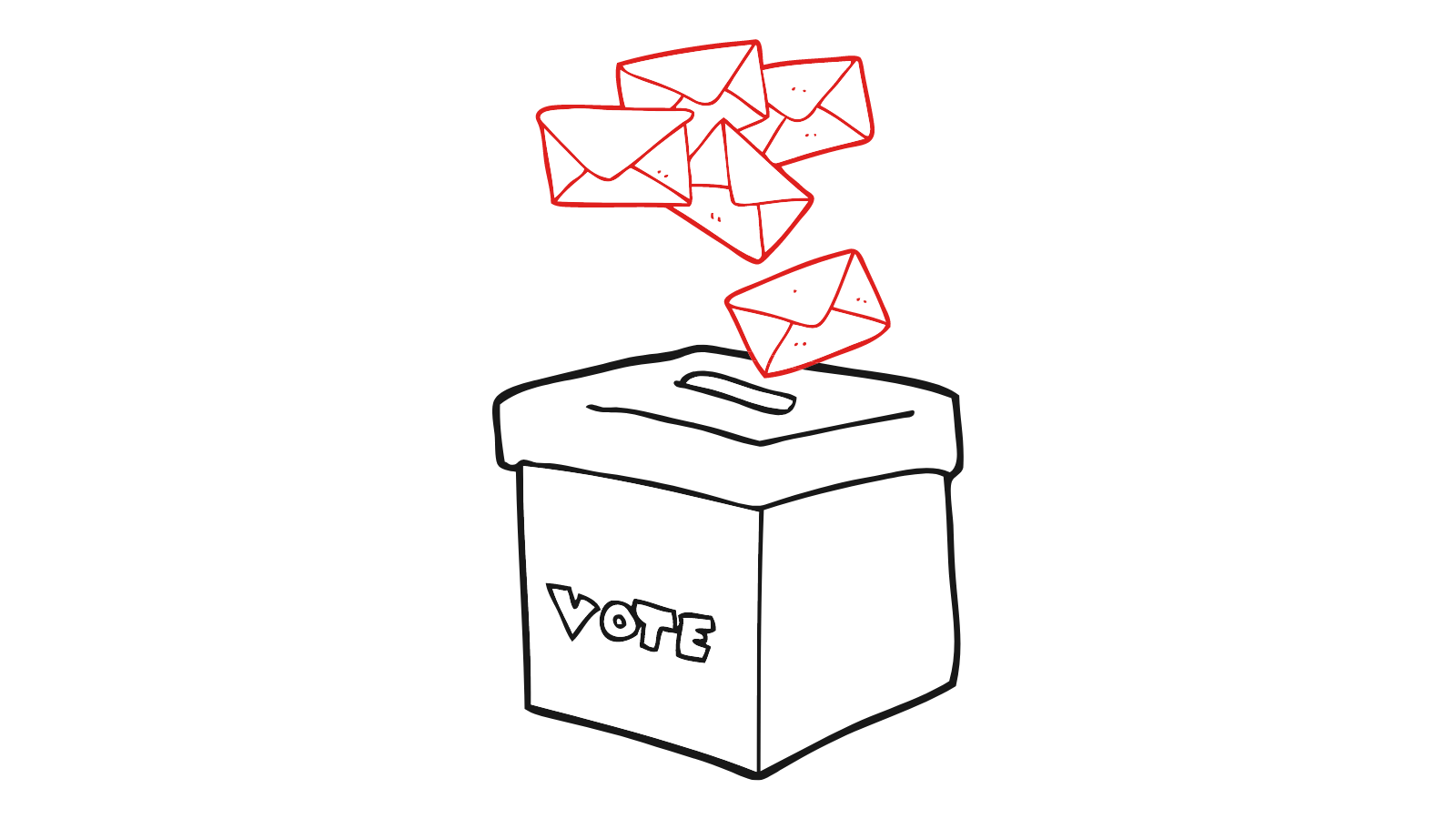“Democracies would be better off without political parties.” Discuss.
In recent years there has been an increasing disdain for traditional political structures evident within some democracies, some scholars and activists have subsequently argued that democracies should no longer have political parties. However, political parties still have a fundamental role in democracy by increasing accountability and enhancing participation. Therefore, democracies would not be better off without political parties. For the purposes of this essay, political parties will be defined as groups that operate within a parliamentary system vying with other parties to secure power and form a government, rather than lobbies or pressure groups who operate externally. This essay will explore the different arguments surrounding political parties with a particular focus on the importance of participation in democracy and consider how parties can enhance or limit this.
It could be argued that political parties simplify the choices voters face, allowing for increased participation. Political parties tend to follow an ideologically coherent programme and therefore voters are able to determine which candidate aligns with their own views (Lucardie & Vandamme, 2022). However, scholars have argued that this weakens democracy as it encourages ‘tribal’ loyalty to a party based on factors such as social class or geography which allows voters to disengage with democracy by over-simplifying participation (Almond, 2018). On the other hand, Moisés Naím (2017) argues that a simplified choice mobilizes citizens to participate in democracy. If voters were forced to spend additional time actively considering each individual policy a candidate supports and how that may align with their lives, election turnout may be reduced and therefore, democracy would be undermined. It is generally believed that high turnout strengthens democracy by giving governments legitimacy and a stronger mandate to govern. Therefore, in theory, political parties enhance participation by simplifying the choices voters face as they put forward clear ideological platforms.
However, a strong argument in favour of replacing political parties arises from this as it has been argued that political parties are no longer succeeding in enhancing participation. In democracies across the world, there is an emerging pattern of populations turning to non-traditional methods of participation (Liddiard, 2019). Figure 1 shows data on the number of protests in different parts of Europe. There was a dramatic increase in protests in Western Europe between 2012 and 2016, and although the figures were lower in 2017, this increase suggests that citizens do not feel satisfied with traditional political structures, including political parties. In 2017, turnout in the 2nd round of the French presidential elections was at its lowest since 1969¹ which again suggests that voters felt dissatisfied with traditional political structures, contributing to the increase in protests.
Some experts have suggested that political parties may contribute to the problems within democracies by contributing to the polarization of societies. Recent years have seen a growing polarization between the two parties in the United States as issues such as abortion and gun control divide societies which has led to gridlock in Congress. Scholars have argued that this polarization creates a “chasm” between citizens and representatives (Muirhead & Rosenblum, 2020), making it difficult to govern effectively. This is demonstrated in the US Congress where there is a threat of a government shutdown, as the Republicans and Democrats in the House of Representatives remain deadlocked over the budget. It could be argued that this gridlock ultimately undermines democracy by making it difficult to translate societal divisions into effective policy, while also fueling cynicism and discouraging participation in democracy. Others have emphasized that this does not mean political parties are obsolete, rather alternate solutions should be considered. For example, Liddiard (2019) argues that revitalising political parties through compulsory voting and increasing partisanship would restore faith in politics and democracy.
Political parties inevitably lead to partisanship which is a central element of most representative democracies. Partisanship can be beneficial to democracy, as Muirhead and Rosenblum (2020) argue, “Parties inform, mobilize, and organize participation”.They go on to argue that parties enhance “epistemic resiliency”, allowing citizens to resist propaganda. On the other hand, it could be argued that partisanship weakens democracy and that non-partisan citizen’s participation is more valuable as they encourage deliberation and are able to make unbiased judgements. However, as Rosenblum argues, parties play a critical role in informing citizens which safeguards democracy against a tyrannical state. Additionally, this negative view of partisanship does not take into account the motivations for partisan loyalty which are often based on social class or geographical location as citizens tend to support parties whose policies favour others who share a similar identity. Therefore it could be argued that partisanship, and by extension, parties enhance democracy.
In conclusion, political parties are facing challenges in various democracies, but they are still fundamental to participation in democracies and are therefore important aspects of democracy as without high levels of participation, specifically through voting, governments cannot claim to have a legitimate mandate to govern, undermining the stability of democracy. Although there are examples of problems within democracies in both the US and Europe, these issues cannot solely be attributed to disdain for political parties. Political parties also have unique benefits, including partisanship which strengthens the relationship between citizens and representatives while enhancing education and safeguarding against one tyrannical party. Additionally, political parties simplify voters’ choices which may also improve democracy by making voting accessible to those with limited interest in politics. However, parties and political systems will have to adapt to face the threats to stable democracy from protests and populist candidates, yet any changes should be made on the foundations of a democracy with multiple political parties.
¹https://www.statista.com/statistics/1068866/participation-rate-voter-turnout-presidential-elections-france/
by Julia Evans-Turner, The Fallibroome Academy
Appendix
Figure 1, Protests by region, Clark, D., & Regan, P. (2016). Mass Mobilization Protest Data. Harvard Database.
Bibliography
Almond, S. (2018, October 30). What If We Got Rid Of Political Parties? | Cognoscenti.
Wbur.org; WBUR. https://www.wbur.org/cognoscenti/2018/10/30/get-rid-of-democrats-and-republicans-steve-almond
Clark, D., & Regan, P. (2016). Mass Mobilization Protest Data. Harvard Database.
Ellison , K. (2021, April 30). Should we cancel political parties? Knowledgeable Magazine. https://knowablemagazine.org/article/society/2021/role-of-political-parties-democracy
Kölln , A.-K. (2015, January 6). Despite their manifest flaws, political parties improve democracy and it is implausible that it could be successful without them. Democratic Audit. https://www.democraticaudit.com/2015/01/06/despite-their-manifest-flaws-political-parties-improve-democracy-it-is-implausible-that-it-could-be-successful-without-them/
Liddiard, P. (2019). What Can Be Done About the Problem of Political Parties?https://www.wilsoncenter.org/sites/default/files/media/documents/publication/liddiard_what_can_be_done_about_the_problem_of_political_parties_september_2019.pdf
Lucardie, P., & Vandamme, P.-É. (2022). Are political parties really indispensable? An overview of the alternatives. https://constdelib.com/wp-content/uploads/2022/06/WP18-2022-CA17135.pdf
Moisés Naím. (2017, September 19). Opinion | Why We Need Political Parties. The New York Times. https://www.nytimes.com/2017/09/19/opinion/need-political-parties.html
Muirhead, R., & Rosenblum, N. L. (2020). The Political Theory of Parties and Partisanship: Catching Up. Annual Review of Political Science, 23(1), 95–110. https://doi.org/10.1146/annurev-polisci-041916-020727
Viviani, L. (2018). Viviani L. (2018), Populism and the broken promises of democracy: towards a partyless democracy? Www.academia.edu. https://www.academia.edu/37150376/Viviani_L_2018_Populism_and_the_broken_promises_of_democracy_towards_a_partyless_democracy







